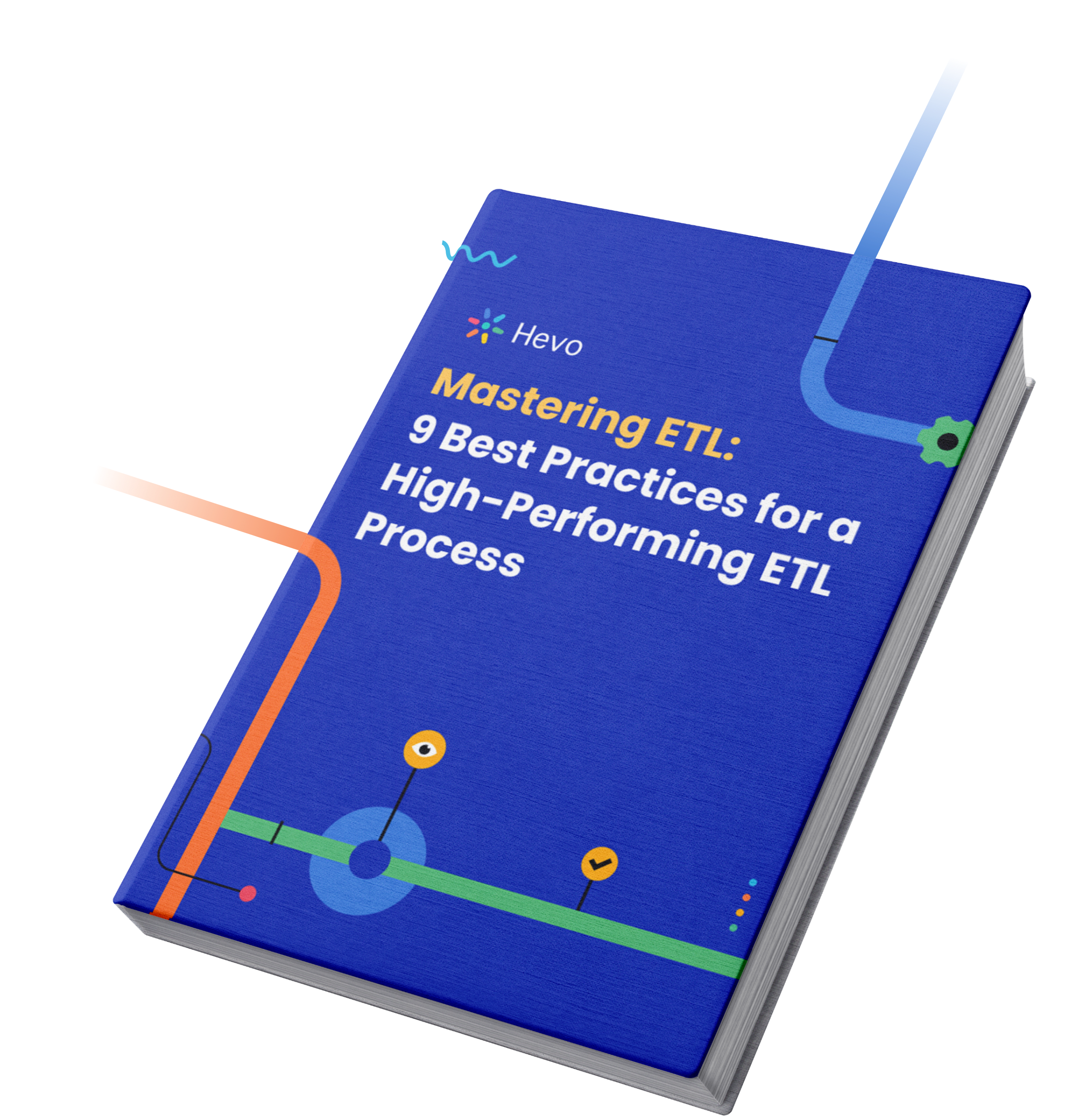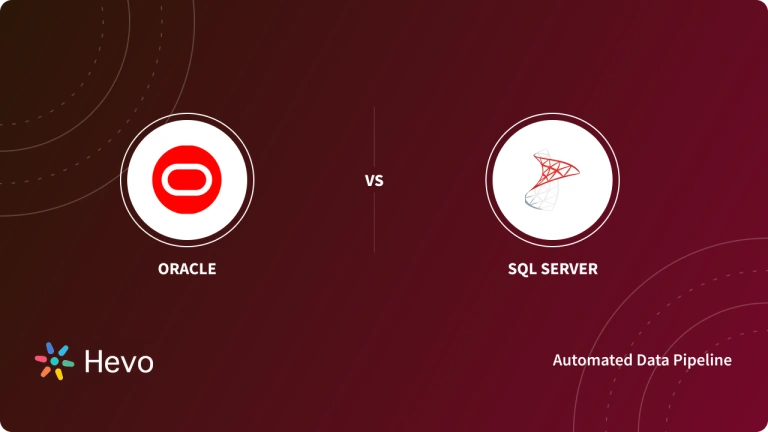PostgreSQL is an Object-Relational Database Management System that focuses on SQL compliance and extensibility. This Open-Source Relational Database supports both JSON & SQL querying and serves as the primary data source for numerous mobile, web, geospatial, and analytics applications.
Oracle has established itself as one of the largest vendors of RDBMS (Relational Database Management System) in the IT market since its inception. The query language that can be used to access data in Oracle’s relational databases is SQL.
This article covers the PostgreSQL vs Oracle discussion keeping in mind 6 crucial factors to help you decide between the two. These factors can serve as yardsticks to help you make an educated decision regarding the best tool to leverage for your needs.
Table of Contents
What is PostgreSQL?
PostgreSQL is widely known for its Open-Source platform that supports all features of RDBMS. It also provides an array of features on top of RDBMS features like indexes, stored procedures, views, triggers, and atomicity features to name a few.
PostgreSQL runs on various major platforms like Windows, Linux, macOS, and UNIX to name a few. Concurrency is managed by PostgreSQL through Multi-Version Concurrency Control (MVCC). MVCC provides each transaction a “Database Snapshot” that allows changes to be made without impacting other transactions. This ensures the maintenance of ACID principles while doing away with the need to read locks.
What is Oracle Database?
Oracle offers a multi-model Database Management System popularly leveraged for Data Warehousing, Online Transaction Processing, and mixed database workloads. Oracle database runs on various major platforms like Linux, UNIX, Windows, and macOS.
Grid Computing aims to solve a few common problems faced by Enterprise IT by producing more resilient and lower-cost operating systems. This style of architecture allows Oracle to deliver a comprehensive database at a lower cost with greater flexibility and a higher quality of service.
Oracle delivers on-the-grid computing functionality to focus on providing its users with centralized management, robust security infrastructure, universal access, and powerful development tools.
Managing data across different platforms like PostgreSQL and Oracle can be challenging. Hevo Data provides a no-code data integration platform to streamline your ETL processes. With support for PostgreSQL as both a source and destination and Oracle as a source, Hevo ensures seamless, automated data pipelines tailored to your needs.
Check out what makes Hevo amazing:
- It has a highly interactive UI that is easy to use.
- It streamlines your data integration task and allows you to scale horizontally.
- The Hevo team is available around the clock to provide exceptional support to you.
Whether leveraging PostgreSQL’s open-source flexibility or Oracle’s enterprise-grade features, Hevo ensures efficient data integration for your business.
Get Started with Hevo for FreePrerequisites
Before diving into the differences between PostgreSQL and Oracle, you need to understand the different types of Database Management Systems. There are two types of Database Management Systems: Open-Sourced and Proprietary systems.
Open-Source Software:
Open-source software is free to download and use, with the added benefit of modifiable source code. This flexibility allows businesses to customize the software to suit their unique requirements. Open-source solutions are supported by active developer communities, offering assistance, bug fixes, and enhancements.
Proprietary Software:
Proprietary, or closed-source, software restricts access to its source code, making it available only to authorized parties. While it requires licensing fees, it compensates with premium features, enterprise-grade security, and robust support, including training, emergency assistance, and detailed documentation. Proprietary software prioritizes stability and seamless integration for large-scale operations.
Comparison Table: PostgreSQL vs Oracle
| Aspect | PostgreSQL | Oracle |
| Type | Open-Source | Proprietary |
| Licensing Cost | Free | High licensing and support costs |
| Platform Support | Windows, Linux, macOS, UNIX | Windows, Linux, macOS, UNIX |
| Transaction Support | Read Committed, Serializable, etc. | Advanced transaction processing |
| Scalability | Free cluster-based storage, WAL files | Enterprise editions required for scaling |
| Replication | Master-Slave, extensions for Master-Master | DataGuard, native Master-Master |
| Support | Community and third-party paid options | Premium support with emergency services |
| Security | Roles, SE-PostgreSQL, native SSL | Enterprise-grade, encryption management |
| Performance | Optimized for analytics and flexibility | High-speed OLTP and hybrid cloud support |
Understanding the Key Differences between PostgreSQL and Oracle
When you study PostgreSQL vs Oracle Database Management Systems, the primary difference between the two is that PostgreSQL is an Open-Source Database Management System while Oracle is a proprietary Database Management System.
Oracle is a licensed commercial RDBMS while PostgreSQL’s development is being carried out by volunteer developers worldwide for free.
PostgreSQL and Oracle both utilize similar concepts like indices, schemas, etc. but branch out in areas like support and replication. Here are a few factors you can use to assess the best tool for your specific needs:
- PostgreSQL vs Oracle: Functionality
- PostgreSQL vs Oracle: Scalability
- PostgreSQL vs Oracle: Support
- PostgreSQL vs Oracle: Replication and Compatibility
- PostgreSQL vs Oracle: Security
- PostgreSQL vs Oracle: Pricing
Functionality
PostgreSQL and Oracle both focus on high availability in terms of functionality. PostgreSQL provides four levels of transactions: Read Committed, Read Uncommitted, Serializable, and Repeatable Read.
However, the number of transactions per second provided by PostgreSQL is less than Oracle DB. Both PostgreSQL and Oracle are ACID compliant.
This also means that due to its technical superiority, Oracle trumps PostgreSQL in terms of productivity.
PostgreSQL vs Oracle: Scalability
- PostgreSQL databases are developed to accommodate any volume of data. Its cluster-based storage solutions allow for immense expansion. PostgreSQL allows you to foster integrity during the scalability operations with WAL files that have a 16 MB limit.
- With Oracle, you can maintain data integrity with redo logs. The Oracle Database offers four sockets in its standard edition for scalability but as the workload increases, you need to purchase the enterprise edition which might be a tad expensive.
- The scalability support offered by PostgreSQL on the other hand is available free of cost. This means in terms of scalability PostgreSQL trumps Oracle owing to its open-source characteristics.
PostgreSQL vs Oracle: Support
- The customer support for Oracle can be availed at a cost. The cost is almost a fourth of the license cost and increases by 3-5% annually.
- Compared to this, PostgreSQL offers customer support for free, but it takes time to resolve an issue since it is carried out by the developer community itself. The developer community actively offers free online support through blogs, code, emails, and other channels.
- You can also avail the help of paid customer support, backed by PostgreSQL professionals, which will cost less than Oracle support. Apart from this, you can also avail of third-party support, like 2nd Quadrant and Enterprise DB.
- Oracle however does offer its users emergency phone support which is missing in PostgreSQL support.
PostgreSQL vs Oracle: Replication and Compatibility
- PostgreSQL ensures high availability through streaming replication. Oracle ensures high availability through DataGuard.
- PostgreSQL supports the Master-Slave model for replication that provides impeccable performance during task allocation, backup, and clustering. Oracle supports both the Master-Slave and the Master-Master model.
- PostgreSQL supports a much larger group of APIs as compared to Oracle, which makes PostgreSQL more compatible with many add-ons, SQL environments, and applications.
- Both PostgreSQL and Oracle provide ORM framework support along with ODBC, JDBC, OLEDB, and .NET library support.
- When comparing Oracle and PostgreSQL, Oracle CDC plays a key role in real-time data capture, making it a standout feature.
PostgreSQL vs Oracle: Security
PostgreSQL allows users to set permissions by offering inherited roles and extra access controls through SE-PostgreSQL. It also supports native SSL, which helps encrypt server communications. Oracle offers more robust security features than PostgreSQL.
It provides excellent isolation solutions between independent key encryption management and pluggable databases. For more advanced security options, you would have to opt for higher-cost editions like auditing and monitoring to name a few.
PostgreSQL vs Oracle: Pricing
PostgreSQL is completely free to use as it is an Open-Source platform. This makes it an economical choice for businesses looking to avoid licensing costs. Additionally, its active community provides free support, and optional paid support services are available at a fraction of the cost compared to proprietary systems.
Oracle, on the other hand, requires a substantial investment due to its licensing fees and additional costs for features like advanced analytics, security, and high-availability tools. The total cost of ownership for Oracle can be significantly higher, making it more suitable for organizations with extensive budgets and advanced requirements.
You can also read about:
- Redshift vs Oracle ADW: key differences
- Oracle vs BigQuery: 11 critical differences
- MySQL vs Oracle: syntax & features
- Oracle vs Teradata: 6 key differences
Conclusion
Choosing between PostgreSQL and Oracle depends on your specific needs, budget, and scalability requirements. PostgreSQL is ideal for businesses looking for an open-source, cost-effective solution with flexibility and community support. Oracle, with its advanced features and enterprise-grade support, is better suited for large-scale operations with complex needs.
For seamless data integration, Hevo Data offers a no-code platform that supports PostgreSQL as both a source and destination and Oracle as a source. With Hevo, you can simplify your ETL processes and ensure reliable data movement across systems. Explore Hevo for a streamlined data management experience. Sign up for a 14-day free trial and experience the feature-rich Hevo suite firsthand.
FAQs
1. Which is better, Postgres or Oracle?
Postgres is open-source, cost-effective, and highly extensible, while Oracle offers advanced features for enterprise use but at a higher cost.
2. Why are companies moving from Oracle to Postgres?
Companies switch to Postgres for its cost-effectiveness, flexibility, and open-source nature, avoiding Oracle’s licensing costs and vendor lock-in.
3. Does PostgreSQL belong to Oracle?
No, PostgreSQL is an independent open-source database system and is not owned by Oracle.









